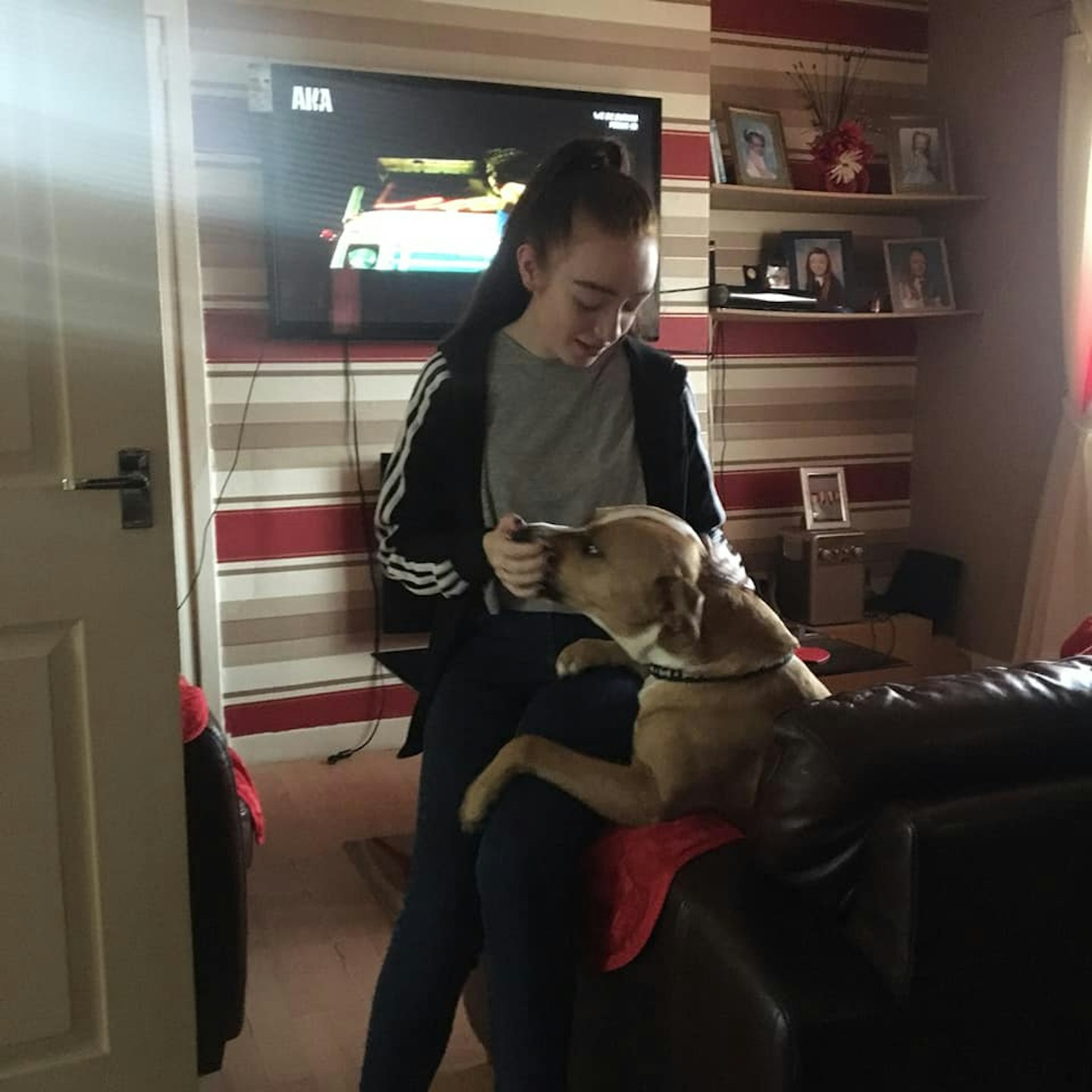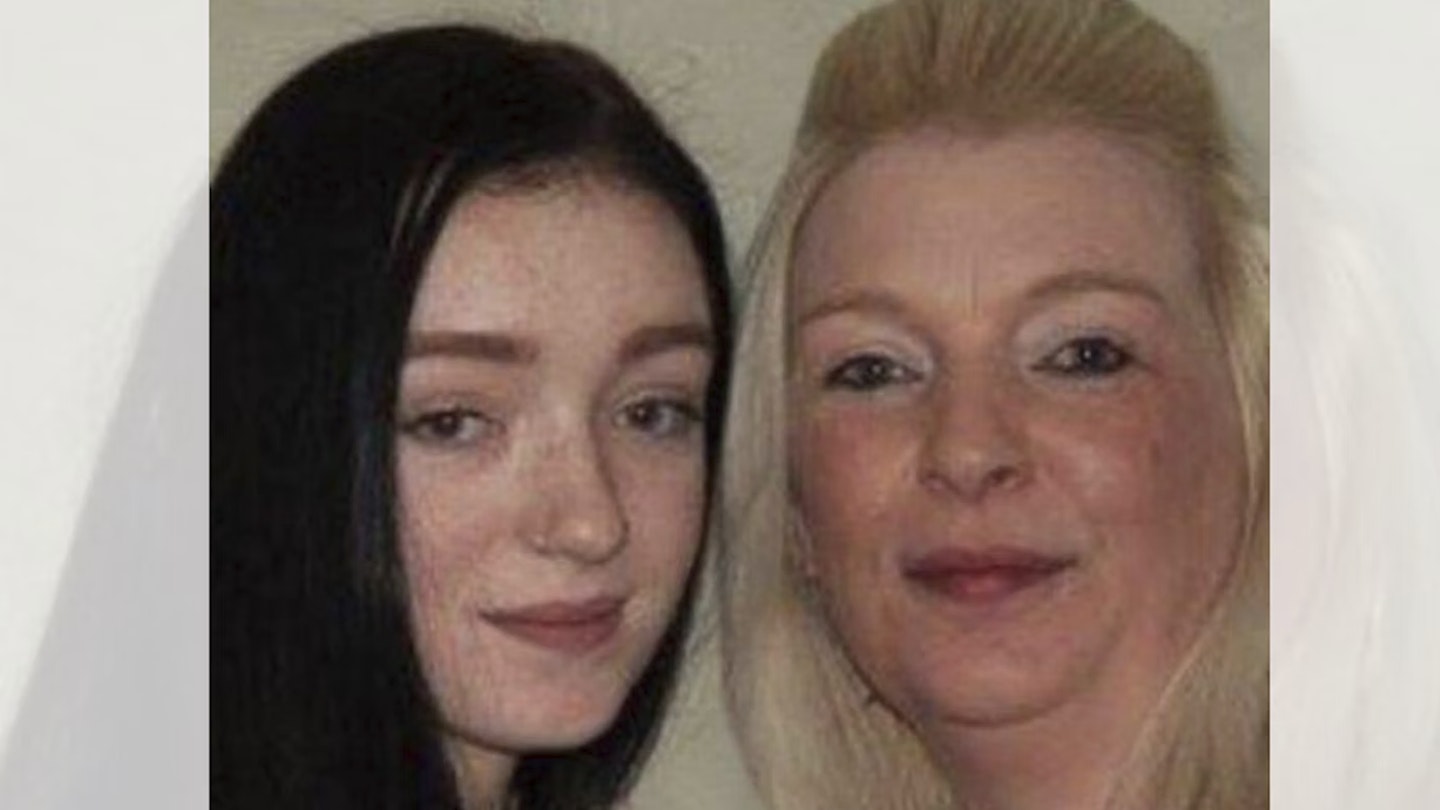Caron’s teenage daughter Alix was losing feeling all over her body. But had doctors jumped to the wrong conclusion?
Watching my daughter Alix, 10, cuddle a baby lion cub, I gave a huge smile.
‘Say cheese!’ I grinned, snapping a picture for the memory books.
We were on holiday in Egypt. Alix had been obsessed with the country’s history since learning about pyramids at school and, as a special treat for her birthday, I’d taken her to visit.
It was just the two of us — I was a single mum and she was my only child, and we were best friends.
Alix had always been shy growing up, hiding behind me in public and keeping to herself,
but she was so funny, creative and smart.
She’d bury her head in books and write amazing stories. At school she loved swimming, dancing and gymnastics.
When she was 13, we bought a pup to add to our family, Mika. The two of them instantly clicked and went everywhere together.

Then, just after Alix’s 16th birthday, she went on holiday with my mum and dad.
But while there, she
mentioned that her fingers felt funny.
‘Maybe they’re just cold, or you’ve got bad circulation,’ I said, when she got home.
But soon, Alix was struggling to tie her shoelaces and brush her hair.
‘My fingers are so painful, Mum,’ she complained.
Back home, we went to the GP, who took one look at them.
‘It looks like arthritis,’ he announced.
‘Arthritis?’ I queried. ‘But she’s only 16.’
The doctor gave her some painkillers and booked Alix to see a rheumatologist — a specialist in chronic inflammatory conditions.
But the appointment was not until four months later.
We hoped the pain would subside, but two months before the appointment, on Christmas Eve, Alix was crippled with pain.
I decided to take her to A&E.
‘There’s something wrong,’ I insisted, but doctors just gave Alix stronger painkillers and sent us on our way.
Feeling fed up with the lack of answers, on Boxing Day, I decided to get private healthcare and got an appointment the following week.
After a five-minute simple reflex test, the doctor looked up at us.
‘This is not arthritis,’ he said gravely. ‘I’m admitting Alix now for an MRI scan.’
I watched panic overtake Alix’s face.
‘It’ll be OK, love,’ I reassured her.
The following day she went for an emergency MRI scan, and they kept her in the hospital until the results were ready.
Two days later, Alix went to take a walk for some fresh air and I noticed she was walking funny. Then her right leg buckled.
‘What’s wrong, love?’ I gasped.
‘I’ve got no control over my leg,’ she stammered.
Doctors booked her in for another scan that evening at 6pm.
At 8pm that night, the consultants sat us down.
‘Alix has an inoperable tumour at the top of her spine in her spinal cord,’ they explained.
A tumour? I thought.
‘Are you telling me I’m going to die?’ Alix cried.
‘No,’ one doctor replied. ‘It’s inoperable, but it is treatable.’
I was terrified for what would happen but I knew I had to stay strong for Alix.
The week after, Alix went in for a biopsy and it took six hours. I held my breath as the surgeon examined it in the microscope.
‘I’m not convinced it’s a tumour,’ he said. ‘It could be an inflammatory disease.’
I felt a temporary wave of relief, but it was soon clouded over by the neurologist who had an opposite opinion.
‘I want to investigate further,’ the surgeon replied.
While they were arguing it out, Alix was on 48 tablets a day to try to shrink it, but they hadn’t started her on any type of treatment.
It was nearing her 17th birthday and I begged them to
let her out for it, so they released her from hospital.
Her legs weren’t working at all, and I had to wash and feed her, but at least she was home.
Then three weeks later, she suddenly collapsed. I called an ambulance, then Alix’s grandad, who came to help us.
But Alix was deteriorating before my eyes.
By the time she arrived at the hospital, and was admitted, she’d lost control of her bladder, and became totally wheelchair-bound.
They put her in an adult ward, which was traumatising for her, but she never cried once.
The only time she complained was when they asked her to take her piercings out and remove her black nail polish for her scans.
Once the scans were over, I opened my handbag and pulled out her favourite black
nail varnish. Then I sat beside her hospital bed and repainted her nails for her.

They examined her blood and it turned out she had clots in her lungs.
We anxiously waited for the biopsy results.
Alix’s face was pale white when we were told.
‘It’s been a tumour all along,’ doctors confirmed.
I completely lost it.
‘You said four months ago it wasn’t!’ I cried. ‘She could’ve been having treatment this whole time!’
My blood was boiling. How could they have got it so wrong?
‘There’s nothing we can do for you,’ they continued.
I wanted a second opinion.
‘What about a stem cell transplant?’ I said.
I’d heard they could stop cancer.
But I was told that only certain patients were receptive to them.
Alix wouldn’t be considered as she was too far along. The cancer was all over her body.
Still, I wanted to try. Stem cell therapy was £5,000 a session so we set up a GoFundMe page.
However, the tumour had to be shrunk first so they suggested radiotherapy.
‘Alix, this is your decision, we don’t think you will make it through,’ doctors said.
‘No,’ she replied. ‘Me and Mum want to fight.’
She was like a warrior.
Every day she had a smile on her face.
She’d always make sure I was looked after too.
‘If you’re not eating, then neither am I, Mum,’ she told me. ‘And if you’re not showering, then I’m not either.’
She started radiotherapy, then her best friends came to see her in the hospital canteen.
‘This is probably the last time you’ll see me,’ she said matter-of-factly. ‘Anyways, how was your weekend?’
I admired her resilience.
Then one night, Alix was in
and out of it, because of her painkillers.
I got us a McDonald’s for dinner, but she didn’t eat very much.
I fell asleep by her side.
But in the morning, I was woken by my friend bawling her eyes out.
‘Alix passed in her sleep,’ she cried.
My heart shattered into a million pieces.
My parents were also heartbroken. They’d doted on Alix.
But they were the ones to pick me up. I could not have got through it without their love and support.
Now, we’ve set up a memorial for Alix. I’m also raising awareness through sharing her story in the hope it’ll help others with her symptoms.
She was just 17. In my view, having a simple reflex test early on could have saved her life.
Caron Cassidy, 43, Glasgow
